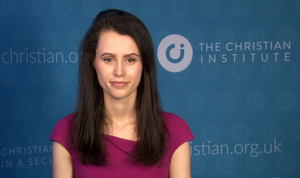On 19 March 2006, Algeria’s Majlis El-Ommat (upper house of parliament) passed a new law imposing prison terms on ‘anyone who, on any part of the Algerian soil, attempts to persuade a Muslim to convert to any other religion’.
The new law had already been adopted by the lower house of parliament.
As in most Arab countries, the first article of the Algerian constitution states, ‘Islam is the religion of the nation’. The new law imposed 2-5 years imprisonment and a fine of up to US$15,000 on ‘anyone who seeks to urge, pressure or use any means of enticement to persuade a Muslim to change to any other religion’.
Underground church
The same punishment is prescribed for ‘anyone who produces, stores, or circulates literature, audiovisual tapes, or any other material which aims at shaking someone’s faith in Islam’. It further prohibits ‘the exercise of any religion other than Islam outside facilities legally licensed’.
The Algerian Ministry of Religious Affairs elaborated that ‘the new law aims at banning illegal non-Muslim activities, especially secret campaigns to convert Muslims to other religions’.
Leaders of the underground Algerian church explained that the Ministry of Religious Affairs had organised a one-day conference for about 3000 Algerian Muslim clergymen in a large mosque in the capital Algiers. It was financed by the International Congress on the Propagation of Islam, whose headquarters is in Saudi Arabia.
The secular Algerian government seems to have been trying to appease less radical Muslims. The conference came up with a strong statement ‘demanding legislators and the Government to act promptly to put a stop to the confusion and corruption of Muslim people, carried out by well-financed and organised illegal entities in collaboration with well-trained and paid Algerian agents’.
This law is ambiguous about the freedoms of Algerian citizens who, as a result of their own personal quest, study, or outside influences such as radio broadcasts, might become Christians or choose to follow another religion or even identify themselves as agnostics or atheists.
Dissent
The passing of this law in both houses of the Algerian parliament was by no means unanimous. A small but significant minority not only voted against the new legislation but have continued to speak publicly against it.
It is important to point out that the Government has not yet actively engaged in any systematic efforts to persecute secularists or converts to other religions, including Christianity.
Moreover, attempts to introduce legislation to establish an Islamic-type police force to enforce the new law and/or impose Islamic practices – such as dress codes for women, public prayers, fasting, the prohibition of alcoholic drinks and ownership of Bibles – were decisively defeated in both houses of the parliament, at the urging of the Government.
As we learn from the book of Acts, the spread of the gospel and the expansion of Christ’s Kingdom do not require Western-style freedoms. However, peace and stability do seem to best serve the cause of Christ.
Our all-wise Lord, who has allowed these restrictions to be introduced by Algerian legislators, is able to protect his people and thwart all attempts to hinder the advance of the gospel.



















